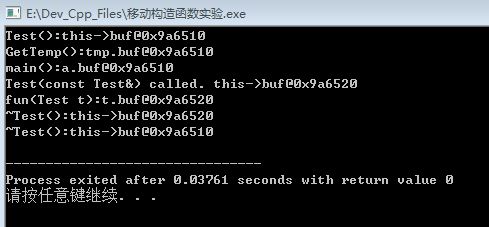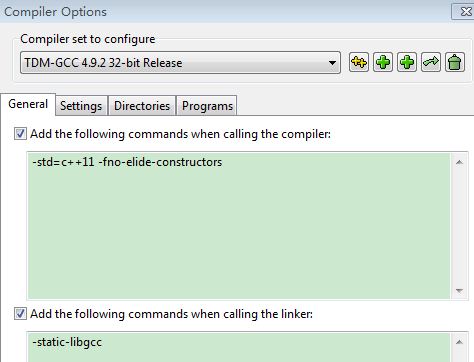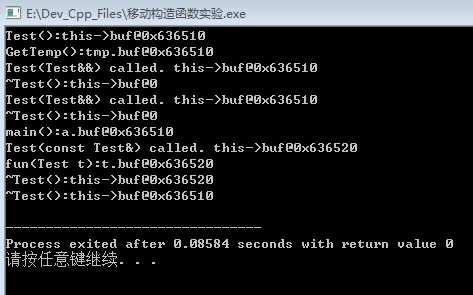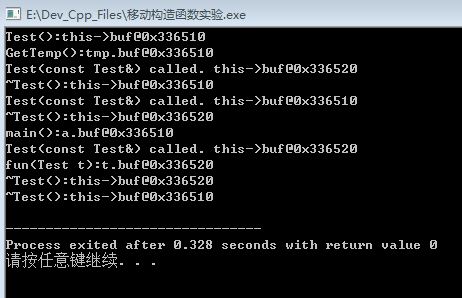#include <iostream>
using namespace std;
class Test{
public:
int* buf; //only for demo
Test(){
buf = new int(3);
cout << "Test():this->buf@" << hex << buf << endl;
}
~Test(){
cout << "~Test():this->buf@" << hex << buf << endl;
if(buf) delete buf;
}
Test(const Test& t):buf(new int(*t.buf)){
cout << "Test(const Test&) called. this->buf@" << hex << buf << endl;
}
Test(Test&& t):buf(t.buf){
cout << "Test(Test&&) called. this->buf@" << hex << buf << endl;
t.buf = nullptr;
}
};
Test GetTemp(){
Test tmp;
cout << "GetTemp():tmp.buf@" << hex << tmp.buf << endl;
return tmp;
}
void fun(Test t){
cout << "fun(Test t):t.buf@" << hex << t.buf << endl;
}
int main(){
Test a = GetTemp();
cout << "main():a.buf@" << hex << a.buf << endl;
fun(a);
return 0;
}当编译选项只有 -std=c++11 时的运行结果:
可见移动构造函数并没有被调用。原因是编译器自动做了返回值优化。需要增加一条编译选项:-fno-elide-constructors ,见下图(Dev C++ 5.11):
当这条编译选项也被加进去之后,再次编译运行,结果如下:
可以看见移动构造函数已经被调用。
若在源代码中去掉移动构造函数,而编译选项依然是上述两条语句时,编译运行结果为:
发现拷贝构造函数顶替了移动构造函数的调用位置,但是拷贝构造函数中 buf 的地址并不是GetTemp()函数中 buf 的地址。也就是说 临时变量 tmp 的值并没有被保存下来,由此可见移动构造函数的独特作用,是拷贝构造函数代替不了的。




























 365
365

 被折叠的 条评论
为什么被折叠?
被折叠的 条评论
为什么被折叠?








